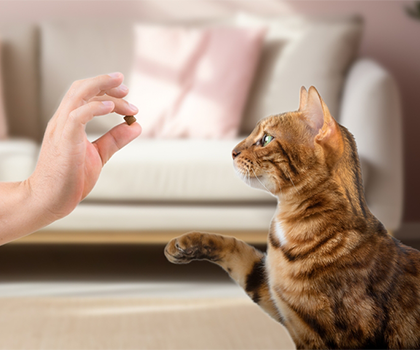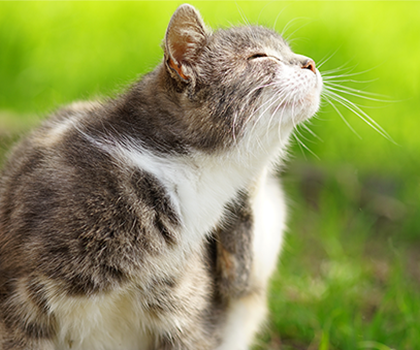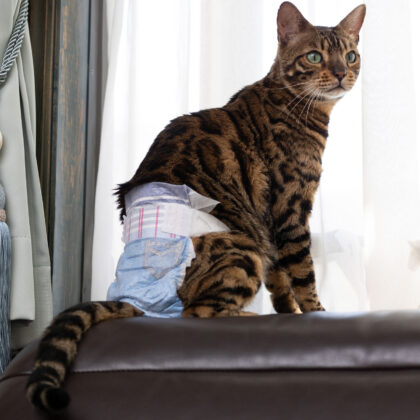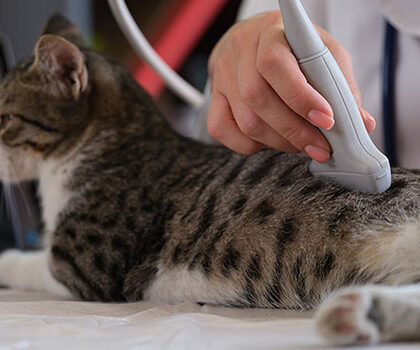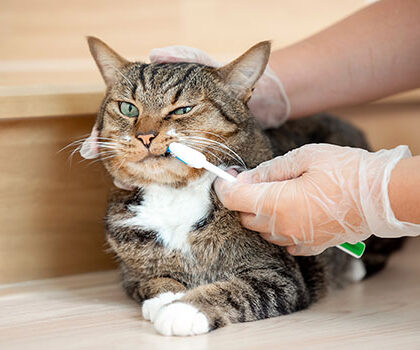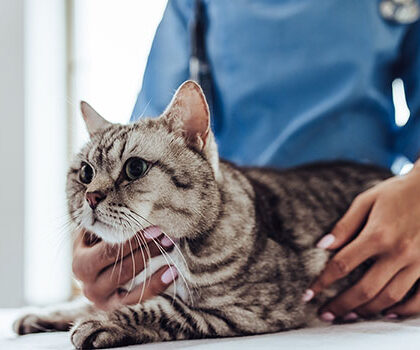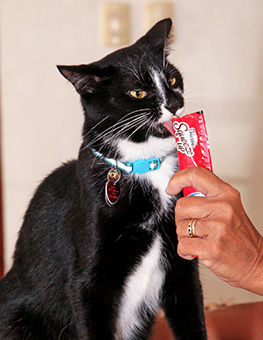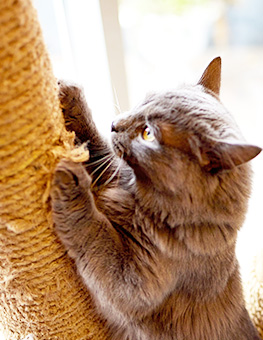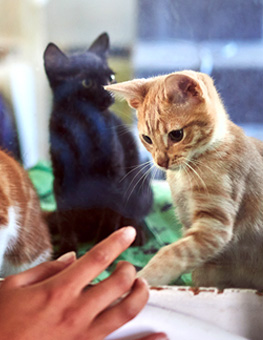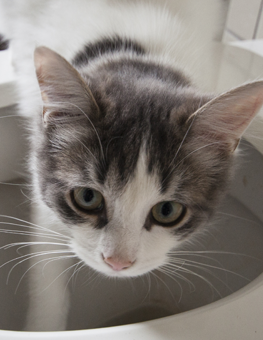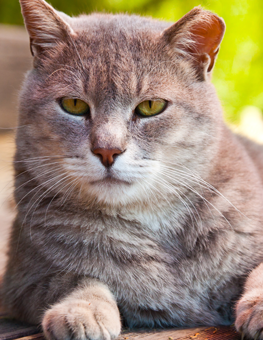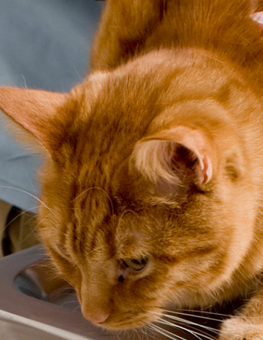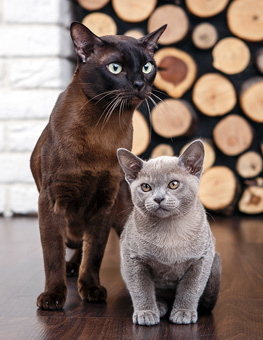Feline Health Concerns
Your cat's odd behavior can be a sign of a serious condition that will require immediate veterinary care.
You need to be sensitive to changes in your cat’s disposition so that you will be able to immediately recognize signs of trouble. Below are the five most common causes of serious feline illness. Take note of their symptoms.
- Urinary tract infections: If your cat visits the litter box frequently, or assumes a urinating position but produces little or no urine, he may have a serious urinary tract infection. Commonly, bacteria or crystals can be the cause. Either of these two are especially dangerous to your male cat because it can cause a blockage (an emergency).
Special diets with reduced magnesium and phosphorus content may help to prevent or reduce the incidence of lower urinary tract disease in your cat.
- Kidney Disease:Excessive drinking and urinating can be an indication of illness; both are classic signs of kidney disease and diabetes. When your cat’s kidneys fail, they lose their ability to concentrate his urine and conserve water. So what he drinks is quickly passed through his body. In response to his body’s need for more water, your cat will drink more excessively. Over time the filtering mechanism in his kidney becomes compromised and toxins that would normally be expelled in urine are retained in his body.
There is no cure for kidney disease, but with guidance and help from your veterinary health team, certain treatments and special diets can help to prolong your cat’s life.
- Diabetes:Over time, you may notice weight loss (despite an increased hearty appetite) along with excessive drinking and a thoroughly soaked litter box. Although a standard urinalysis will screen for glucose in your cat’s urine, a blood test will be required to obtain an actual blood glucose level.
If your cat is diagnosed as diabetic, he will be given a special prescription food, which helps to regulate glucose metabolism. Additionally, your veterinarian may prescribe insulin therapy.
- Hepatic Lipidosis: Whether it is a result of food changes or illness, your cat occasionally may not want to eat. If this happens, keep a close eye that the hunger strike does not continue for longer than two or three days, otherwise hepatic lipidosis can occur. When your cat does not eat, the body mobilizes fat to the liver where the liver is unable to process such large amounts of fat at one time, causing the liver to get “stopped up”. This is called a “fatty liver.” Outward symptoms include anorexia, nausea, jaundice (yellowing of the skin), and vomiting.
- Dental Disease: Symptoms of dental disease include bad breath, red or inflamed gums, yellow-brown tartar, decrease in eating, and drooling. If your cat is showing any of these symptoms, take him to his veterinarian. Remember: it costs much more to treat than to prevent dental disease and its complications.
As a cat owner, your vigilance and watchful eye is the first line of defense against feline disease. Never attempt to troubleshoot by modifying your cat’s diet or experimenting with medication. Your veterinarian is trained to identify the problem and quickly put your kitty on the road to recovery.



